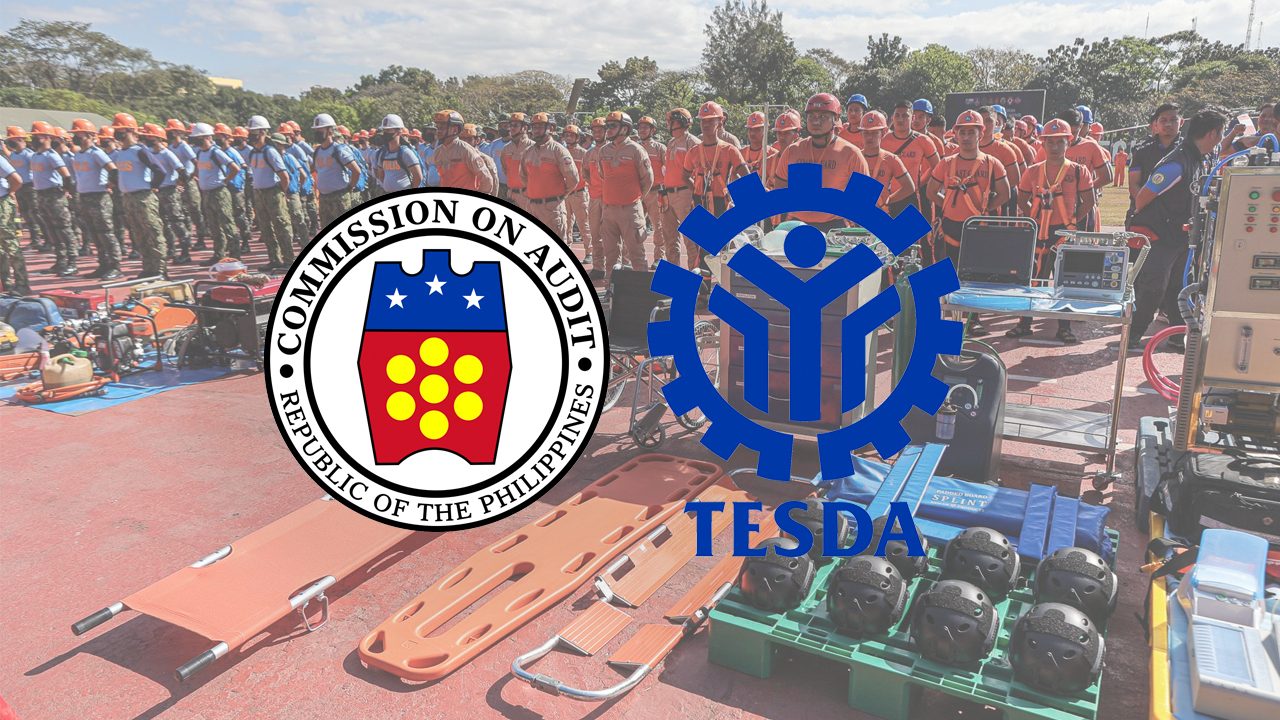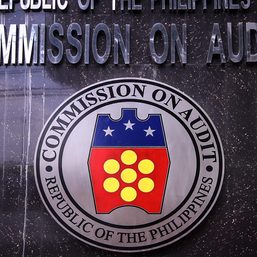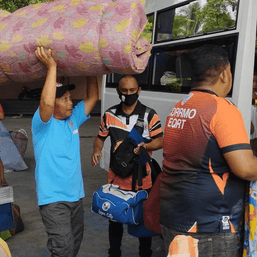SUMMARY
This is AI generated summarization, which may have errors. For context, always refer to the full article.

MANILA, Philippines – The Commission on Audit (COA) called the attention of the Technical Education and Skills Development Authority (TESDA) over using government resources in its involvement in disaster response activities. COA urged the agency to instead let the Department of Social Welfare and Development (DSWD) and the National Disaster Risk Reduction and Management Council (NDRRMC) handle such responsibilities.
COA’s statement comes after TESDA deployed agency personnel to Siargao in 2022 to assist residents affected by the devastation of Typhoon Odette.
COA flagged this move as an unauthorized use of resources, as it fell outside TESDA’s mandate, which was to focus on providing technical and vocational courses and training for enhancing students’ skills in preparation for employment.
“The provision for strategic intervention in response to disasters and calamities is the mandate of other government agencies like DSWD and NDRRMC, along with concerned local governments,” COA said in its annual audit report.
COA highlighted that any expenses related to calamity and disaster response divert from TESDA’s core mission of providing high-quality education and skills development programs.
TESDA Order Nos. 002 and 002-A s. 2022, issued on January 3 and 7, 2022, established “regional buddy systems” for Typhoon Odette-affected areas.
The order assigned 229 officials and personnel from various TESDA regional offices to provide support workforce and technical services to affected regions.
The expenses for these operations were intended to be charged against regular maintenance and other operating expenses and Sariling Sikap Program (SSP) funds.
Expenses charged to these fund sources included fuel, transportation, mobility, and other emergency costs, with the maximum duration of one month.
However, COA said that tapping the SSP fund for these purposes was not a valid option, as it contradicted the fund’s specific purpose under Executive Order No. 939.
A sample expense breakdown revealed that the TESDA spent funds on catering, transportation, accommodations, and procurement activities related to the initiative. Regional offices also drew money from the SSP, which COA found to be a violation of the fund’s intended use.
In response to the audit findings, the TESDA National Capital Region justified its use of the funds by stating that its assistance to Siargao residents aligned with TESDA’s objective of offering support services through basic technical and skills training.
However, COA disagreed with this stance.
The auditors emphasized that TESDA’s primary mandate is to provide training for employment, not disaster relief, as the immediate concern of disaster victims is survival. – Rappler.com
Add a comment
How does this make you feel?












There are no comments yet. Add your comment to start the conversation.